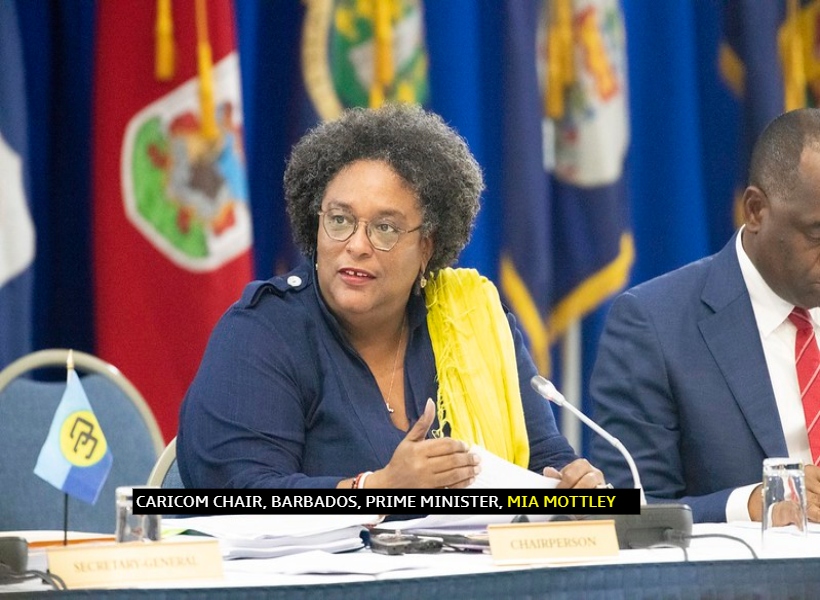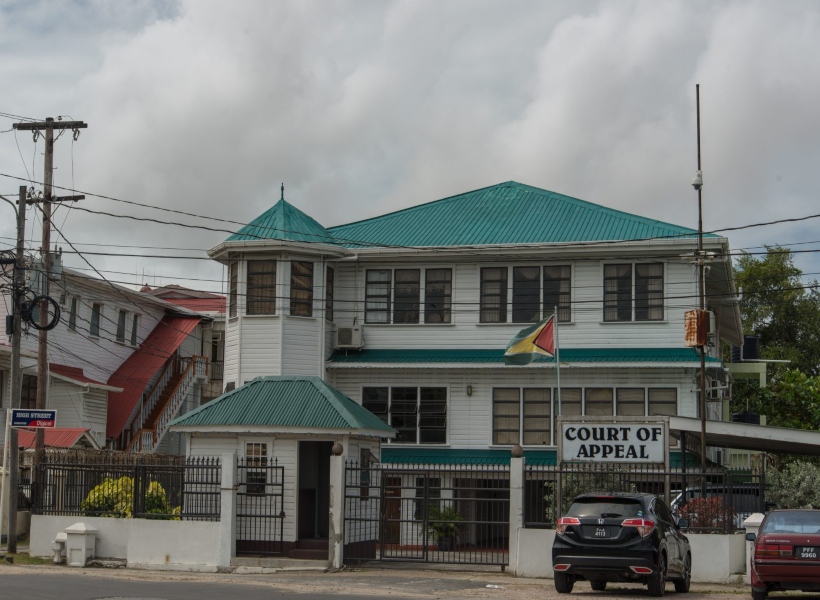In a unanimous decision delivered today, the Court of Appeal dismissed an application filed by government supporter, Misenga Jones who is seeking to block the declaration of the March 02, 2020 elections results using the votes tabulated during the recount exercise. Jones’ contention is that the recount exercise is unconstitutional, which renders the votes tabulated therein invalid, and that the Guyana Elections Commission (GECOM) must, and can only use the declarations made by the 10 Returning Officers to declare a President.
Justices of Appeal Dawn Gregory and Rishi Persaud and additional Judge of the High Court Priya Sewnarine-Beharry affirmed the decision of Chief Justice Roxane George that the results from the recount must be used for the declaration of the winner of the elections. That further, the three judges held that the Caribbean Court of Justice (CCJ) in its ruling in the case of Ali et al versus GECOM, did not nullify the votes tabulated during the recount or Order #60 of 2020, otherwise known as the recount order.
The Court of Appeal agreed with the ruling of Justice George that Chief Elections Officer (CEO), Keith Lowenfield is a statutory officer employed by GECOM, and as such is subject to the direction and control of the Commission. In light of the foregoing, the Court of Appeal held that Lowenfield must follow the directions of Chairperson of GECOM, retired Judge Claudette Singh and submit his report on the basis of the votes tabulated during the recount exercise.
In her ruling, Justice Sewnarine-Beharry said, “Therefore the direction given to the CEO to prepare his report in accordance with the recount must be treated as a valid, lawful directive which the CEO is required to obey by virtue of Section 18 of the Elections Law (Amendment)Act. Order # 60 of 2020 (Recount Order) is part of the electoral regime by which the CEO is bound and this can only mean that the CEO can only prepare his report based on the recount numbers. It is disingenuous for the CEO to insist on preparing his report on the basis of the March 13 declarations when GECOM specifically issued Order #60 to deal with the various disputes and contentions that arose after polling day.”
The Court of Appeal agreed with the finding of the Chief Justice that the issue of the Constitutionality of Section 22 of the Elections Law (Amendment) Act and the validity of the Order # 60 of 2020 and the validity of the recount votes are questions for an election petition after the results of the elections are declared. The Chief Justice, in coming to a conclusion in this matter ruled that the Court of Appeal in the case of Eslyn David et al, having found that a challenge to Section 22 of the Elections Law (Amendment) Act is one for an election petition, the principles of res judicata apply.
The Court of Appeal in that case held that “Such a determination would be disruptive to the electoral process. Moreover, it is well established that constitutional questions can be determined at the hearing of an [election] petition.”
Res Judicata is a Latin term, which means that the issue as to the constitutionality of Section 22 of the Elections Law (Amendment) Act, was already raised and determined by the Court of Appeal, and that the High Court cannot further make any pronouncement on the issues since it is bound by any decision of the Court of Appeal, a superior court in the judicial hierarchy.













